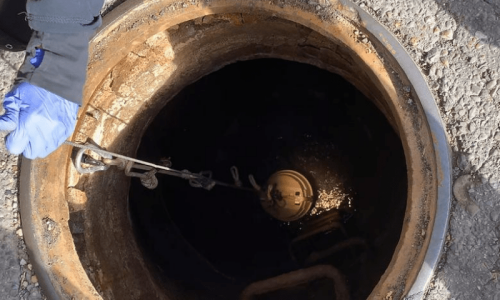KARACHI: The Sindh High Court on Monday directed the provincial authorities to conduct a detailed inquiry to ascertain the reasons as to why the Sindh Land Alienation Bill, 1947 had not become law despite being duly passed by the Sindh Legislative Assembly.
The SHC noted that the bill was an important historical legislative effort aimed at addressing economic injustices prevalent in pre-partition Sindh, particularly the exploitation of the local Muslim population.
A two-judge bench comprising Justice Salahuddin Panhwar and Justice Amjad Ali Sahito also observed that the bill was modeled after enactment of Punjab Land Alienation Act of 1900, a law which restricted transfer of agricultural land from farming communities to non-agricultural classes such as moneylenders.
It also directed the provincial authorities that committees must be constituted at the district level in Sindh to carry out investigation about agricultural land and other properties owned by local Muslims which were either transferred or held under mortgage or redemption agreements with Hindus during the period from 1917 to 1947.
SHC terms bill an important legislative effort to address economic injustices in pre-partition Sindh
The bench further ordered the secretary law department to place a copy of the Sindh Land Alienation Bill 1947, along with the debates and deliberations held by the members of the Sindh Legislative Assembly within 15 days.
The provincial culture department must undertake efforts to preserve the history surrounding the partition and its associated complexities and such initiative aims to educate the general public on the multifaceted issues arising from the partition and the legislative efforts made during that time, it added.
The bench passed these directives while disposing of a petition in which a petitioner submitted that his ancestors had migrated from India to Pakistan in 1947 and since they were landlords in Jaipur, they had filed their respective claims after their migration to Pakistan and the same was accepted, however he has continuously been approaching relevant authorities for years to resolve the issue, but to no avail.
The court noted that a provincial law officer has raised some serious questions regarding the claims made under rehabilitation of displaced persons’ laws and argued about the pre-partition status of agricultural and non-agricultural land and maintained that there was a common practice of mortgaging land in lieu of loans by land owners and such lands could not be redeemed for want of payment of huge markups.
The SHC also said that despite being rooted in principles of fairness and justice, the legislative journey of bill ended in disappointment as it failed to receive requisite assent from key authorities, including the Viceroy of India and Governor General of Pakistan.
The bill’s underlying objectives remain relevant today, as they reflect a broader vision
of empowering marginalised communities and promoting equitable resource distribution, it added.
The bench further said that the district-level committee, to be headed by the deputy commissioners concerned, were tasked to examine the status of properties under the evacuee pool that were originally owned by Muslims but mortgaged due to money-lending or other financial constraints including petitioner’s claim so that he may avail appropriate remedy.
Such committees will also have to ascertain whether these properties could have been redeemed under the provisions of the Sindh Land Alienation Bill, 1947, had it been enacted, it added.
The bench ordered that such committees must submit comprehensive reports within six months and emphasised that the rights of parties who have lawfully acquired title to such properties under existing laws must not be adversely affected in any manner.
Published in Dawn, November 26th, 2024













































Dear visitor, the comments section is undergoing an overhaul and will return soon.